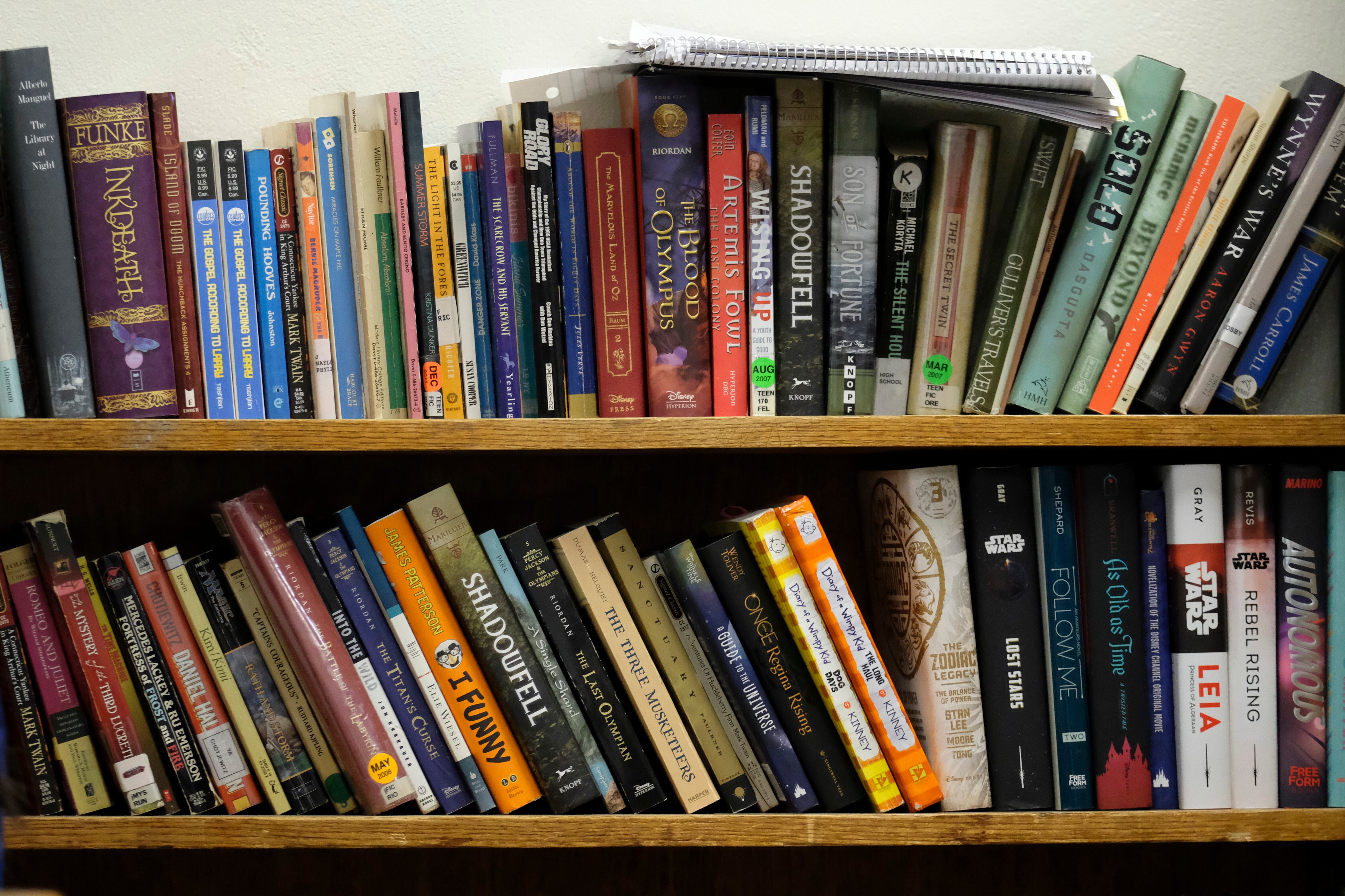Sign up for Chalkbeat Detroit’s free daily newsletter to keep up with the city’s public school system and Michigan education policy.
Michigan’s State Board of Education voted Tuesday to take a stance against book bans and in favor of students’ freedom to read diverse collections of literature.
Amid a wave of book removals in school libraries across the country, often prompted by state and local politicians, the board adopted a resolution expressing concern over censorship.
The move came weeks after the Michigan Civil Rights Commission asked Attorney General Dana Nessel for an opinion on whether removals of books exploring LGBTQ+ issues from public school libraries are a form of discrimination prohibited by state civil rights law.
The board’s resolution calls on local school leaders to follow best practices in handling book challenges and affirms that school librarians have the professional skills to select age-appropriate materials. The board’s statement also recognizes that certified librarians have a positive impact on student’s learning and academic outcomes.
“I do feel like in specific areas and districts, librarians have been targeted with a lot of hate and name-calling, and it’s affecting the mental health of those professionals,” said Kathy Lester, a librarian in Plymouth-Canton Community Schools who heads the American Association of School Librarians. “Hearing some people standing up and saying that this needs to stop and we need to respect our professionals is very helpful.”
Books on race, sexuality face challenges
In recent years, books covering issues such as racism, sexuality, and gender identity have been challenged by conservative politicians, administrators, and parents who deem them inappropriate for students. Some have labeled literature with any mentions or depictions of sexuality or nudity “pornography,” and in certain instances have attempted to have librarians criminally investigated for allowing such titles to stay on shelves.
During its meeting Tuesday, the Democratic-controlled board approved an amendment to its resolution stating that the governing body supports parents’ right to decide which books are appropriate for their children.
“I’m not for banning books,” said board co-Vice President Tiffany Tilley, who suggested the amendment. “For some parents, they may not be ready for their children to read about some of those things, and that’s fine. We’re not trying to make decisions for their children, but we’re not trying to ban books from everybody.”
The board rejected a proposal from member Tom McMillin that he said would clarify that “pornography” would be prohibited from schools.
“I would like to make sure that it’s clear — that it is in here — that at least we can go on record and say that there is a level where certain books or certain materials should not be available in schools to students in any grade,” he said.
Board President Pamela Pugh said it was “unfortunate” that McMillin put the amendment forward, noting that existing laws prohibit pornography from being distributed to minors.
Equating the books under discussion with pornography is “just a way to continue to spread disinformation,” Pugh said.
McMillin and Nikki Snyder were the only members who voted against the resolution.
From July 2021 to June 2022, 41 books were banned in four Michigan districts, according to an analysis by PEN America, a nonprofit that aims to protect freedom of expression in literature. Thirty-four of the removals documented by the organization were in Gladwin Community Schools and were prompted by a school administrator, the database shows. Five books were pulled from Rochester Community Schools, one from Novi Community School District, and one from Hudsonville Public Schools.
During the first half of the 2022-23 school year, PEN America tracked 18 books that were restricted from student access in Michigan. Of those titles, eight were in Davison Community Schools and seven in Dearborn Public Schools. One book was pulled from Portage Public Schools shelves, one in Spring Lake Public Schools, and one in St. Joseph Public Schools, according to the database.
Michigan has a shortage of librarians
Lester, the head of the librarians group, said that while the board’s resolution is a positive move to support school librarians in the state, more can be done to champion reading and literacy for Michigan students.
“In Michigan, we need more access to certified school librarians,” she said. “We are 47th in the nation in terms of the number of school librarians per student in our state.”
While numerous studies show the positive impact certified librarians can have on student achievement, Lester said many of those positions have been cut over the years because of budget restraints.
Districts in low-income and rural communities in the state tend to have few if any librarians, Lester added.
By 2020, there were two full-time, certified librarians in the Detroit Public Schools Community District.
Legislation introduced in 2018 would have required all Michigan public schools to have a library and one certified librarian. The bills failed to move forward that session.
The Legislature’s Democratic majority has “so many priorities,” Lester said, that the shortage of librarians hasn’t made their agenda.
“We have big improvements to make in reading achievement” in Michigan, Lester said, “I feel like this needs to become a critical issue and something we do prioritize in our state.”
Hannah Dellinger covers K-12 education for Chalkbeat Detroit. Reach her at hdellinger@chalkbeat.org.






